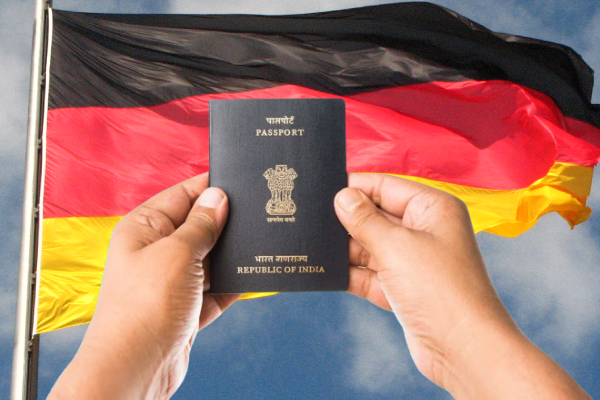Best Consultants For Study In Germany

About Germany
Germany has become a popular choice for Indian students who want to study abroad. This is because it offers high-quality education, low tuition fees, and good job opportunities after graduation. Today, more than 25,000 Indian students are studying at universities in Germany, making it one of the top countries for higher education among Indian students.Germany is home to over 400 universities and offers a wide range of programs in fields such as Engineering, Medicine, and Social Sciences. In 2023, the country attracted more than 380,000 international students—a 5% increase from the previous year. One of the major draws is the financial support available, with scholarships totaling more than €850 million aimed at helping international students. Germany also boasts the lowest unemployment rate in the European Union at just 4.31%, making it an attractive destination not only for education but also for future career opportunities.

Why Study in Germany?

Affordable Education
Compared to many other countries, the cost of studying in Germany is quite low. Many universities offer scholarships that can significantly reduce or even cover tuition fees.

Top-Quality Universities
Germany is home to several highly ranked and globally recognized universities. These institutions offer a variety of programs specially designed for international students.

Wide Range of Courses
Students can choose from a large selection of degree programs across different fields of study.

Lower Living Expenses
The cost of living in Germany is relatively low compared to other popular study destinations, making it easier on students’ budgets.

Part-Time Work Opportunities
International students are allowed to work part-time while studying, which helps them support themselves financially.

Courses in English
Many universities offer programs taught in English, making it easier for students from around the world to study without needing to be fluent in German.
Types of German Study Visas
Germany offers different types of study visas depending on your purpose and stage of education. Whether you’re pursuing a degree or preparing to apply, there’s a visa suited to your needs
German Student Visa

This is the most common visa for international students who have already been accepted into a recognized university in Germany and are ready to start their academic program.
German Application Visa

If you haven’t yet been admitted to a university and need to be in Germany to apply in person or attend interviews, this visa is for you. It doesn’t allow you to begin studying but lets you complete the application process from within the country.
German Language Visa

If your main goal is to take a German language course in Germany, this visa is the right option. It’s specifically for students who are enrolled in a language program, not a full university degree.
Basic Requirements to Study in Germany
How to Apply
Here’s a step-by-step process to apply to a German university
- Research Courses and Universities: Use websites like DAAD (www.daad.de) to find suitable programs.
- Check Requirements: See if your academic background fits the entry requirements
- Prepare Documents: These include transcripts, language certificates, passport copy, motivation letter, etc.
- Submit Application: Apply directly or via Uni-Assist.
- Receive Admission Letter: If accepted, you’ll get a letter of admission.
- Apply for Visa: Start the visa process immediately after getting your admission.
- Arrange Accommodation: Look for housing before you arrive.
- Travel and Enroll: Once you get your visa, book your flight and register at your university after arriving in Germany.
What Is the Cost of a German Study Visa?
If you’re applying for a study visa for Germany, you’ll need to pay a visa fee, which must be done through a bank transfer—credit cards and cheques are not accepted. The payment should be made via a money order addressed to your country’s German Embassy or Consulate, and it must be issued within the last two months. Here’s a breakdown of the visa fees:
- National Visa (for stays longer than 90 days): €75 (about ₹6,200)
- Schengen Visa (for stays up to 90 days): €80 (about ₹7,088)
Important: The visa fee is non-refundable, even if your application is denied.
Processing time for German Study Visa?
Typically, a German study visa takes around 25 days to be processed. However, the exact processing time can vary depending on your home country and the specific German Embassy or Consulate handling your application. In some cases, it can take anywhere from 6 to 12 weeks, and in rare situations, it may take up to 3 months. It’s a good idea to apply as early as possible to avoid any delays.

Costs and Scholarships

Tuition Fees
Public universities charge little or no tuition. You may only have to pay a semester fee of €150–€300, which includes public transport.

Living Costs
The monthly living expenses in Germany approximately from €850 to €1,000.. This includes rent, food, health insurance, transport, and other expenses.

Scholarships
The DAAD Scholarship is the most popular. It is offered for Master’s and PhD students. Some universities also offer their own scholarships based on merit or financial need.
Part-Time Jobs and Work Opportunities
International students in Germany are permitted to work during their studies.
- You can work 120 full days or 240 half days in a year.
- Many students find part-time jobs in cafes, supermarkets, or as student assistants.
- After graduation you can apply for a employment seeker visa which allows you to stay in Germany for up to 18 months to do work in your area .
How KB Visa Consultants Can Help You?
- Our guidance is provided by certified and authorized immigration consultants..
- We guide you step-by-step through the eligibility checks and application process.
- The entire process is secure, transparent, and handled online for your convenience.
- We have a system in place to handle any complaints or concerns during the process.
- With over 30,000 applications successfully processed, our experience speaks for itself.
- Each application is carefully reviewed multiple times before submission to avoid errors.
- We make it easy to assess your qualifications and skills to check your chances of success.
Our goal is to ensure your study abroad experience is easy and worry-free.
Frequently Asked Questions
A: The official language is German. English is widely understood in major cities, especially among younger people.
A: Yes, Germany is part of the Schengen Area. A valid Schengen visa allows travel to all member countries.
A: Germany has an excellent public transport system. The Deutsche Bahn (DB) trains, regional trains, trams, and buses connect cities and towns efficiently.
A: Yes, Germany has one of the best healthcare systems in the world. Health insurance is mandatory for residents.
A: Most public universities charge no tuition fees for EU and non-EU students, though some administrative fees apply.
